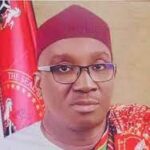Regardless of whatever politics one subscribes to, President-elect, Trump has never left anyone doubting where he stands on foreign relations. Between 2016-2020 he withdrew the US from major global coalitions such as the United Nations Human Rights Council, the United Nations Educational Scientific and Cultural Organisation and had he won his 2020 reelection, he would have likely pulled out of the World Health Organisation as well. That is to say his platform has always been a US centric one that has no interest in taking part in the established international order. Every norm that we typically differ is seldom applicable to Trump and every potential American partner must keep this in mind.
In terms of African relations, the US for the last 20 years has varied in impact and relevance but President Trump’s tenure had the most limited engagement in recent memory, which in part can be attributed to his belief that many developing countries in Africa are corrupt and export criminals to the United States through immigration, as implied by his infamous “sh*thole countries” quote from 2018.
Leading up to the 2016 election, Trump focused highly on disaffected white voters, who opposed Obama’s liberal policies that focused more so on institutions and rule of law. His “Make America Great Again” slogan, as well as growing discontent with the ever increasing amount of globalisation that saw the US buying and importing services from other nations, particularly China. He paired this well with his brand of populist rhetoric that largely framed the liberal government led by Democrats as corrupt and unconcerned with the common people. His leadership marked a shift towards nationalism and a disregard for old institutions and established alliances. Trade was far more transactional and gave preference towards deals that were more immediately beneficial to the US. This in turn led to reduced American influence abroad across the board in every foreign market.
By comparison, Obama’s tenure while bearing its own shortcomings had a comparatively more involved position. He supported trade initiatives such as the African Growth and Opportunity act, he organised the 2014 African leaders summit where discussions on trade, investment, public health, sustainable growth and climate issues.
- Prioritising sensitisation and inclusion in Nigeria’s tax reform
- Baba Shettima, Nigeria’s iconic photographer bows out
Underscoring the importance of African leadership in addressing global challenges as well as cultivation of an pan African voice that could facilitate unity and national pride in each member nation. Obama also gave his support in combating HIV/AIDS through the continuation and expansion of the President’s Emergency plan for AIDS Relief (PEPFAR) for the promotion of health consciousness and to better prepare for STD pandemics in the region. This is to say, Obama’s diplomatic relations with African leaders was marked by an attempt to improve stability, highlighting the need for economic development, respect for democratic institutions and promotion of peace.
Now at the end of 2024, President Trump is now slated to resume leadership in the White House next year and he has announced a return of high tariff policies across the board for imports in order to encourage local manufacturing to outcompete China. The US will likely assume a more transactional approach in terms of trade. At a glance, it seems unlikely that Nigeria will be in Trump’s second term. That being said, there may still be an opportunity for development in the US and Nigerian relations. We have a significant diaspora abroad in both the US and UK.
Given that ease of business was among one of Trump’s major campaign components Nigeria provides tech companies with a new avenue for growth and with our vast population it could become a hub for tech development and e-commerce. With homegrown companies like Flutterwave and Paystack leading the charge, the countries tech-savvy population and growing appetite for digital financial solutions make it a valuable market for developers. We’ve already seen particular growth as it relates to Elon Musk’s Starlink Satellite internet, which has given many rural areas in Nigeria higher internet penetration.
The US does not exist in a vacuum and if Trump intends to grow US industry while limiting involvement in old markets, then Africa is surely the next most viable market, otherwise these spaces will be seeded to another actor and as far as global competition goes, the BRICS have the potential to challenge the American hegemony and has already taken steps to secure support from various African nations.
China is Nigeria’s main partner for infrastructure development, financing and constructing railways, airports, and housing projects through its Belt and Road Initiative (BRI). India, one of Nigeria’s largest crude oil buyers, also expanded its footprint in pharmaceuticals, Information Technology, and education. Meanwhile, Russia is leveraging its expertise in energy and arms to solidify partnerships in Nigeria. South Africa, as a regional economic powerhouse, and Brazil, with its shared cultural ties to Nigeria, further enhance the BRICS bloc’s influence. Moreover, BRICS’ unified push for a multipolar global order aligns with Nigeria’s aspirations to diversify its alliances and reduce dependence on Western powers. The emergence of the BRICS New Development Bank as an alternative to institutions like the IMF and World Bank gives Nigeria more options, diminishing the U.S.’s influence over economic policy.
Ibrahim wrote from Abuja

 Join Daily Trust WhatsApp Community For Quick Access To News and Happenings Around You.
Join Daily Trust WhatsApp Community For Quick Access To News and Happenings Around You.


